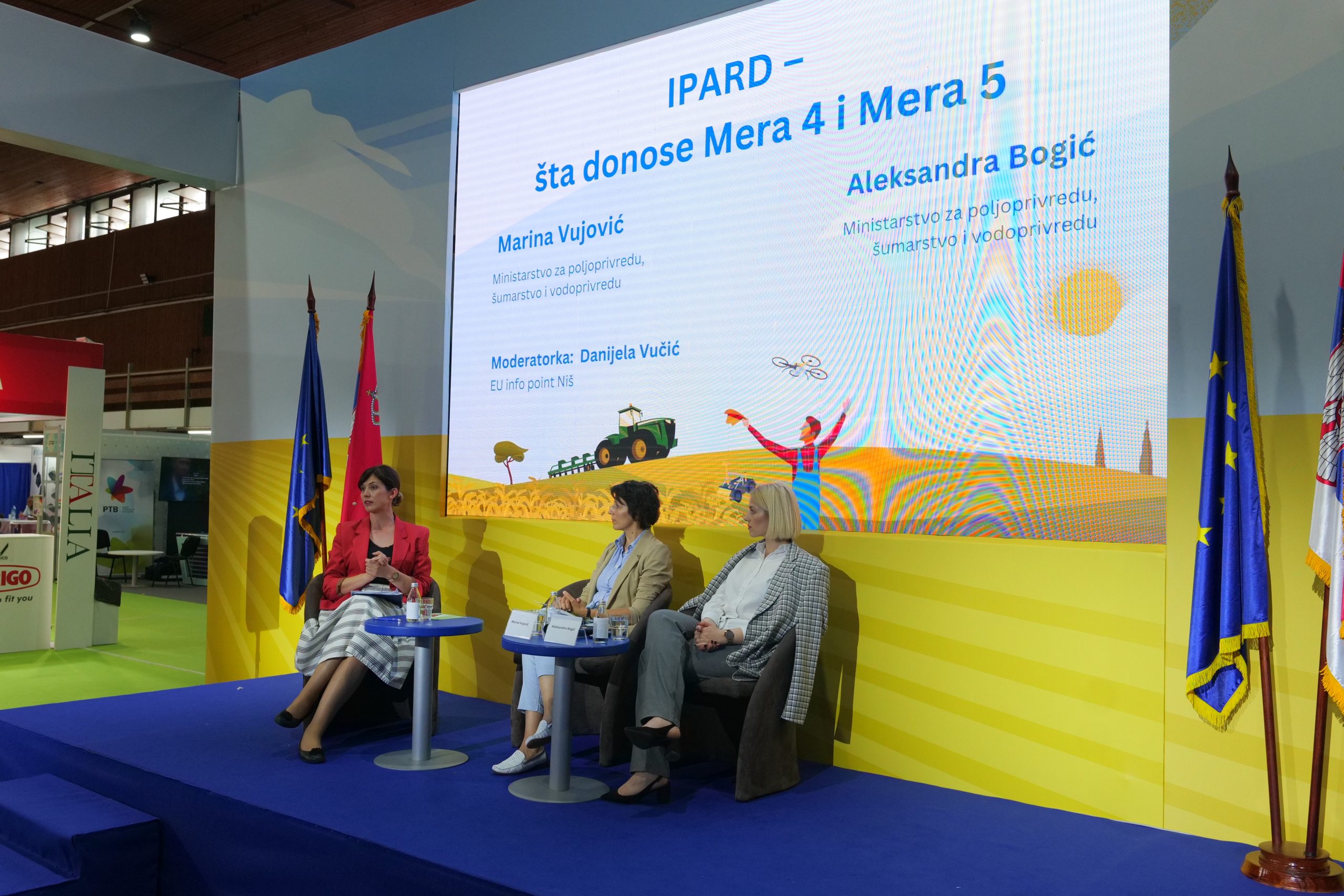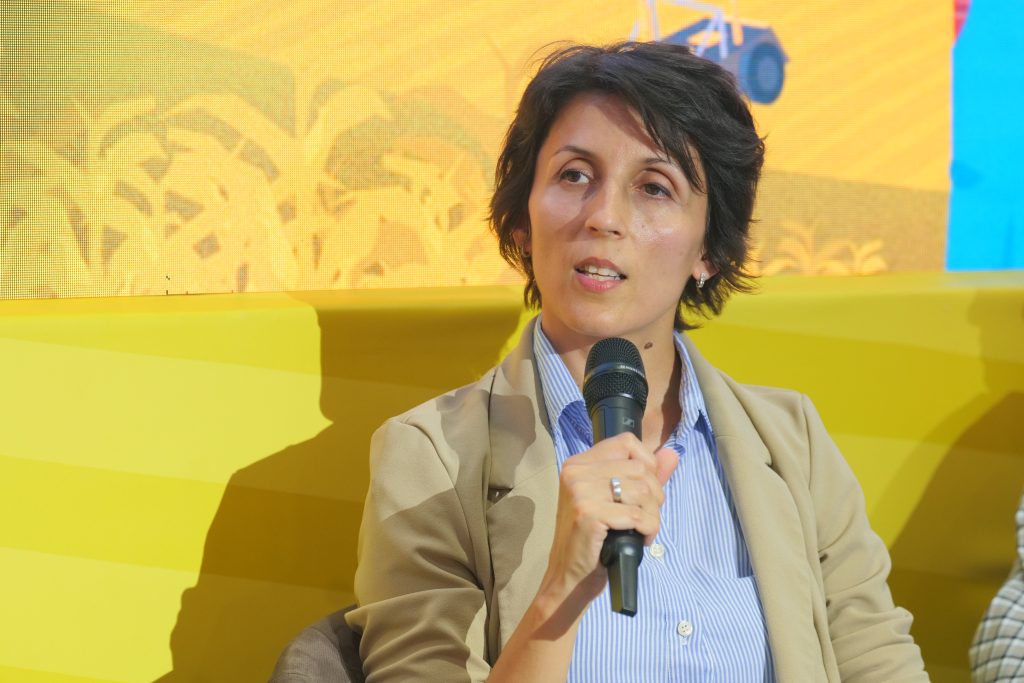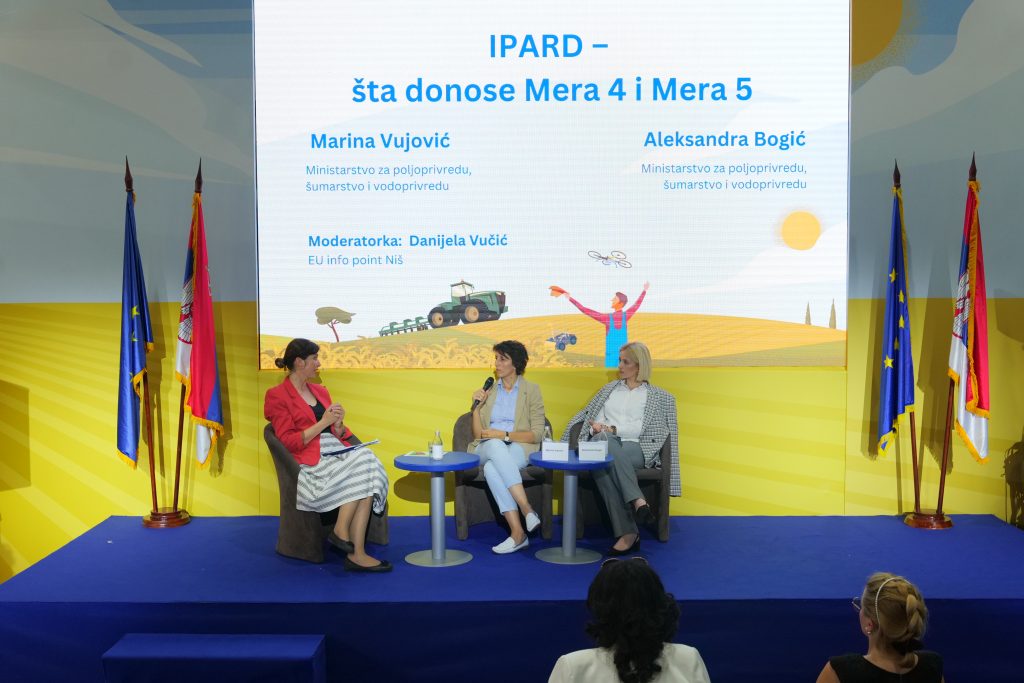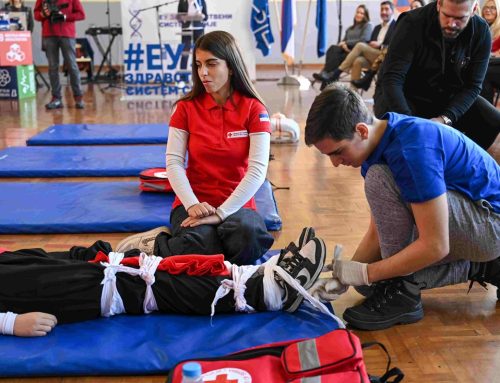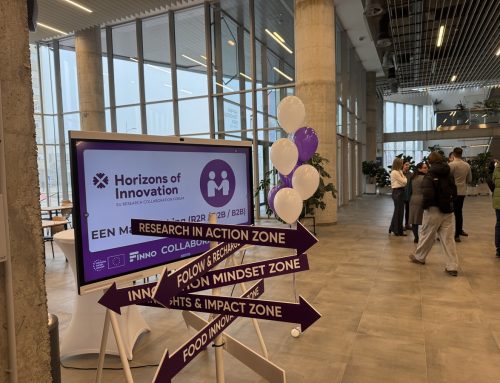The new cycle of IPARD incentives started this spring, and made hundreds of millions of euros available to domestic farmers. It also brought them certain novelties, compared to the previous programme. Thus, two more measures will soon be accredited – Measure 4 (Agri-environment-climate and organic farming measure) and Measure 5 (LEADER approach).
Marina Vujović and Aleksandra Bogić from the Ministry of Agriculture spoke about the novelties during the fourth day of the Agricultural Fair, as part of a panel organized in the EU Pavilion.
“Everyone who wants to take the first step, to continue production in a different way, can apply for this measure without restrictions on the size of the farm. The focus is on agricultural land, and the larger the are under the measure, the better”, said Vujović, referring to Measure 4.
The focus of this measure is biodiversity, as well as limiting the use of chemical agents, preventing erosion, and many other measures that contribute to a healthier nature, and thus, ultimately, healthier food.
The recipient is obliged to manage the agricultural property for five years as he/she committed himself/herself through this measure, she reminded.
One of the mandatory conditions is education before staring the measure, which will be organized in agricultural extension services.
Trying to provide more details about the goals of Measure 5, Aleksandra Bogić explained that it deals with specific problems at the local level, with the aim of improving the quality of life in rural areas. This is the only IPARD measure that supports associations, so they are the end users here. Partnerships can be made up of the civil sector, civil sector organizations, non-governmental sector, farmers, processors, businessmen …
Essentially, it is about supporting local action groups (LAG).
“The most important is the bottom-up approach – people at the local level are best able to assess what they need and what their goals are”, said Bogić.
Accreditation of this measure is expected at the end of this year, and the first public call at the beginning of next year. However, for Measure 4, the situation is somewhat more specific.
“The measure is linked to the growing season, so it cannot be announced throughout the year. Nevertheless, the first public call is expected at the beginning of next year, before the start of the season, and in order to have enough time for the training of recipients, before the implementation begins”, concluded Vujović.
- Measure 4 – Agri-environment-climate and organic farming measure
The measure aims to encourage agricultural producers to protect and enhance the environment on agricultural land under their management. For Serbian farmer, this is a new measure that is still in the accreditation process. It is expected to become available next year and is particularly interesting to beekeepers.
The general goal of this measure is to contribute to the sustainable management of natural resources and climate change adaptation, as well as to their mitigation through the application of sustainable agricultural production methods that go beyond the level of protection already determined by national regulations.
Прикажи ову објаву у апликацији Instagram
- Measure 5 – LEADER approach
The LEADER approach deals with specific problems at the local level, enabling the population organized in partnerships – Local Action Groups (LAG), to implement smaller local projects that are important for the development and improvement of the quality of life in rural areas.
Small projects include activities such as: village festivals; participation in fairs and events; procurement of materials and equipment (computers, furniture and equipment for common areas, tourist information boards, signs, production of publications and promotional material, etc.; minor renovation of public buildings; improvement of public spaces and tourist trails; promotion of local products; drafting of plans for reconstruction of historical buildings, etc.).
The basic principles of LEADER are: local development based on the territory; a “bottom-up” approach, in which the local population participates in decision-making on local rural development strategies and setting priorities that will be implemented in their local community. Public-private partnership includes actors from all sectors (public, civil, private) with the participation of the public sector of a maximum of 49 percent.
More information about IPARD III can be found on the dedicated website of the Ministry of Agriculture – ipard.gov.rs.
Helpful information can also be found on the website of the Directorate for Agrarian Payments, an agency of the Ministry of Agriculture, Forestry and Water Management, tasked with implementing the IPARD programme. Inquiries may also be directed via email at ipard.info@minpolj.gov.rs or +381 11 31 07 013.
Visit the website eumogucnosti.rs, and keep track of all current competitions and calls.
The European Union supported Serbian agriculture with more than EUR 150 million before the start of IPARD II Programme with the allocation of EUR 175 of EU support. The ongoing IPARD III Programme will bring even more opportunities for Serbian farmers and another EUR 288 million of EU support. The main objectives of IPARD support include increasing the competitiveness of Serbian farmers, preserving the environment and biodiversity, supporting rural businesses and communities, and developing rural infrastructure.

